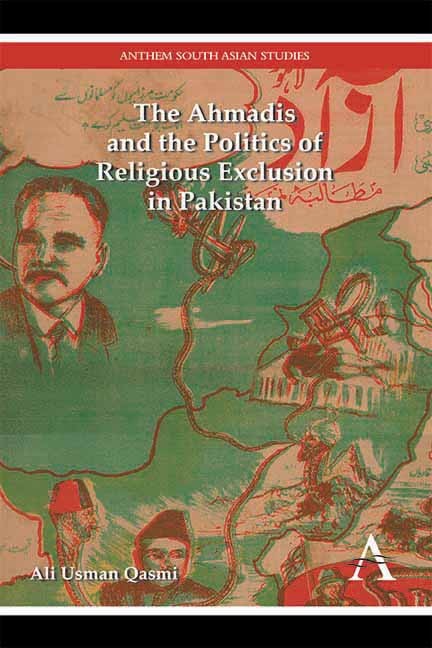Book contents
- Frontmatter
- Contents
- Acknowledgments
- Introduction
- Part I
- Chapter I The Records of the Court of Inquiry and the Munir–Kiyani Report
- Chapter II The Background to Jama'at Ahmadiyyah and the Origins of the Anti-Ahmadi Movement: The Role of Majlis-i-Ahrar and Majlis-i-' Amal
- Chapter III The Political Hierarchy and Administrative Structure of Pakistan: Contextualizing the Events of 1952–53
- Chapter IV Disturbances in Lahore and the Imposition of Martial Law
- Chapter V The Findings of the Munir—Kiyani Report
- Part II
- Debates on the Ahmadis after 1974: A Postscript
- Notes
- Bibliography
- Index
Chapter I - The Records of the Court of Inquiry and the Munir–Kiyani Report
from Part I
Published online by Cambridge University Press: 05 September 2014
- Frontmatter
- Contents
- Acknowledgments
- Introduction
- Part I
- Chapter I The Records of the Court of Inquiry and the Munir–Kiyani Report
- Chapter II The Background to Jama'at Ahmadiyyah and the Origins of the Anti-Ahmadi Movement: The Role of Majlis-i-Ahrar and Majlis-i-' Amal
- Chapter III The Political Hierarchy and Administrative Structure of Pakistan: Contextualizing the Events of 1952–53
- Chapter IV Disturbances in Lahore and the Imposition of Martial Law
- Chapter V The Findings of the Munir—Kiyani Report
- Part II
- Debates on the Ahmadis after 1974: A Postscript
- Notes
- Bibliography
- Index
Summary
Introduction
This chapter will give a description of the court of inquiry set up by the government of Punjab, procedures adopted for its conduct and individuals or groups who were made party to its proceedings. This will help understand the functioning of the court of inquiry which led to the accumulation of its detailed record, on the basis of which the Munir–Kiyani report was compiled and which has been used for this study as well. The chapter will also address methodological issues relating to the use of the archive generated by the court of inquiry. In doing so, this chapter also considers the question of the dual importance of the Munir–Kiyani report and the record of the court of inquiry as an official chronicle and source for the events of 1953, and as a text which can be read critically for such wider theoretical concerns as an understanding of contestations about Islam, religious exclusion and secular polity in contemporary Pakistan and elsewhere in the postcolonial Muslim states. It is this latter aspect of the report, the chapter argues, which has given it an enduring significance as a reference for various ideological debates aligned along the simplistic mullah/modernist binary, even in contemporary Pakistan.
The court of inquiry
Sardar Shaukat Hayat, an erstwhile political ally of the chief minister of Punjab, Mumtaz Ahmad Khan Daultana (who was deposed after the events of 1953), was among the first persons to demand an inquiry commission to probe the disturbances in Punjab. This he said in a speech during the budget session of the Punjab Assembly. He alleged that power politics between the province and the center and the maneuvers of some central ministers against the prime minister were responsible for killings in the Punjab. He also accused Daultana of giving his tacit support to the movement. As long as Daultana remained chief minister of the province, no effort would be made in the direction of inquiring about the incidents of March 1953. His own political standing and the situation of the province in general was too shaky to allow for the undertaking of such an inquiry. It was only after his removal as the chief minister, within a month following the declaration of martial law, that the new ministry of Punjab set up a court of inquiry.
- Type
- Chapter
- Information
- Publisher: Anthem PressPrint publication year: 2014



